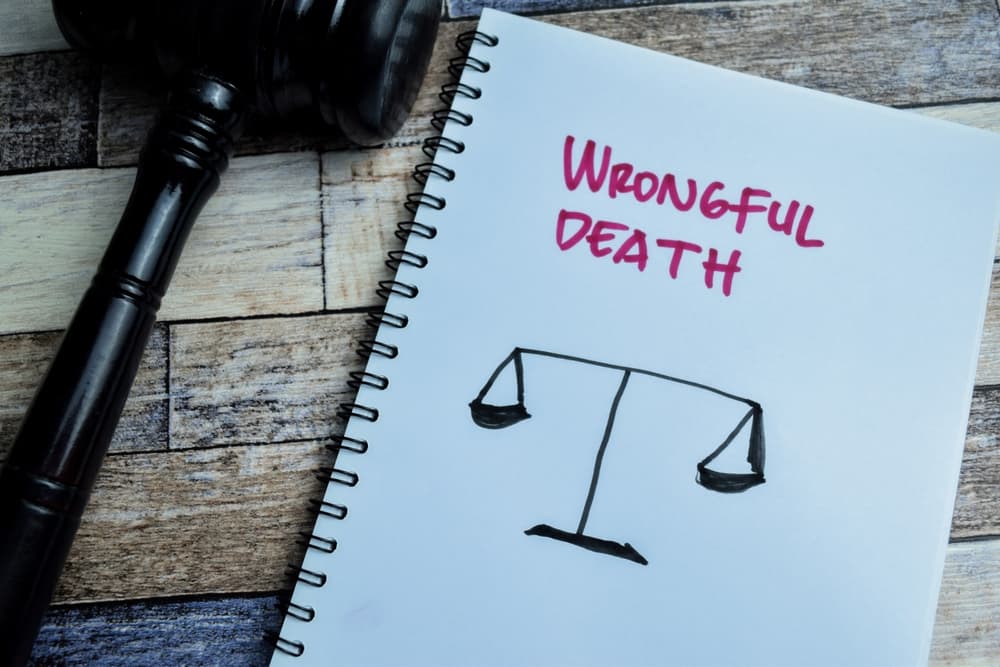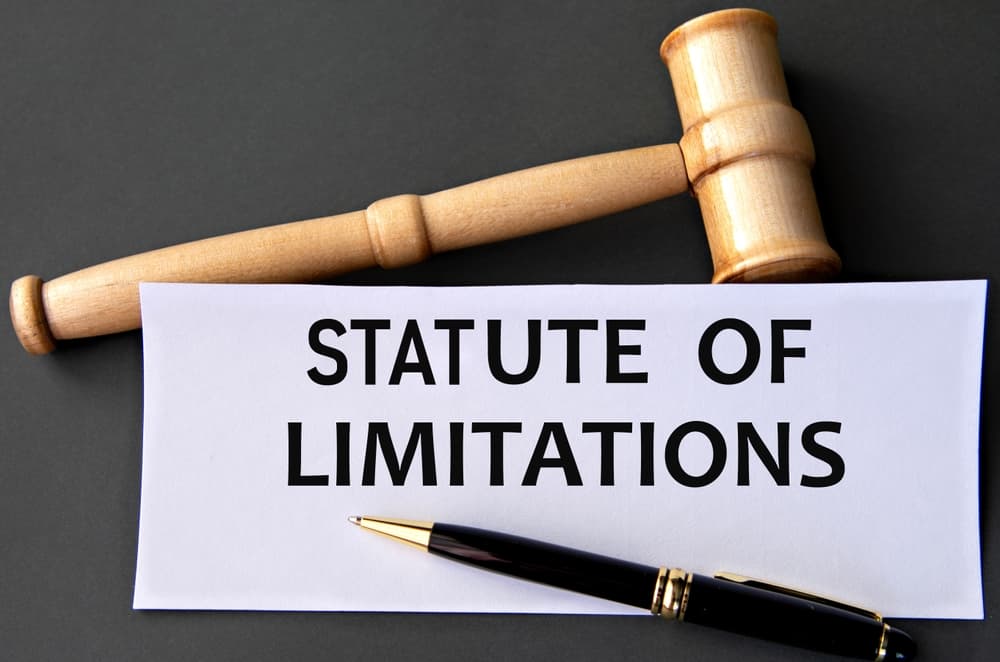Losing a loved one is a deeply emotional experience, and when that loss occurs due to someone else’s negligence or intentional actions, it can be even more devastating. In legal terms, such incidents fall under the category of wrongful death, where surviving family members may seek justice through civil litigation. However, like all legal matters, there are time constraints within which a lawsuit must be filed, referred to as statutes of limitations.
Statutes of limitations play a crucial role in the lawsuit process. A wrongful death attorney can explain your state’s statute of limitations and handle your claim timely to ensure you don’t miss your chance to file your legal claim.
What is Wrongful Death?

Wrongful death occurs when a person dies due to the legal fault of another party. This fault can arise from negligence, recklessness, or intentional misconduct.
Surviving family members may have the opportunity to bring a wrongful death lawsuit against the responsible party or parties. By filing a legal claim, family members can pursue justice as well as financial compensation following the death of their loved one.
Incidents Often Resulting in Wrongful Death
A wrongful death can arise from a wide variety of situations. In these scenarios, a party or entity’s misconduct is the cause of the victim’s death. Common causes of wrongful death include, but are not limited to:
- Motor vehicle accidents, including car, truck, and motorcycle accident
- Bicycle accidents
- Pedestrian accidents
- Workplace accidents
- Premises liability incidents, like slips and falls and dog bites
- Use of defective products
- Medical malpractice, including misdiagnosis, surgical errors, and prescription medication issues
- Criminal conduct, including intentional murder
Based on the specifics of the incident, the victim may suffer physical harm and eventually succumb to their injuries, or the incident may be severe enough to kill the victim immediately.
If your loved one has died at the hands of another, consult a skilled wrongful death lawyer right away. An attorney can provide guidance and direction regarding your legal case.
Liability for Wrongful Death
Several parties may be responsible for causing a person’s death, depending on the details of the situation. Some of the parties commonly held responsible for wrongful deaths include:
- Healthcare professionals, including doctors and nurses
- Medical facilities, like hospitals and nursing homes
- Car and truck drivers
- Drivers’ employers
- Cargo loaders
- Repair and maintenance companies
- Product designers and manufacturers
- Caregivers
- Landowners and occupiers
Based on the events leading to the death, one party alone may be at fault, or multiple parties may share responsibility. It is vital to determine who caused the victim’s death to ensure you seek financial recovery from the appropriate party.
Wrongful Death Lawsuits
Wrongful death lawsuits are unique and often complex. These cases fall under the area of personal injury, which allows injured victims to pursue justice and compensation. Because the victim is no longer around to seek monetary recovery, the law allows their loved ones to do so.
Who Can File a Wrongful Death Claim?
While many people may feel entitled to compensation after the death of a loved one, not just anyone can file a wrongful death claim. You must turn to your state’s law concerning procedures for wrongful death actions.
In some states, like Colorado, certain parties, including the victim’s spouse, children, or designated beneficiaries, can file a wrongful death lawsuit. However, in other states, like Florida, only the victim’s personal representative can file the legal claim on behalf of the surviving family members. A personal representative is the party in charge of handling and properly closing out a person’s estate after their passing.
When you consult a wrongful death lawyer, they can clarify who has the right to file your wrongful death claim. Based on your state’s laws, they can help determine who will handle the lawsuit.
Compensation Available in Wrongful Death Claims

Along with holding the responsible parties accountable for their wrongdoing, the primary purpose of a wrongful death lawsuit is to pursue compensation. Wrongful death damages help provide monetary relief for the unexpected losses and expenses resulting from a loved one’s death.
The damages available for a wrongful death suit depend on state law and the specific circumstances but can include:
- Medical expenses
- Funeral and burial costs
- Lost earnings and benefits
- Pain and suffering
- Emotional distress
- Loss of love, support, and companionship
- Loss of consortium
Additionally, you can obtain punitive damages, which serve to punish defendants for actions that go above mere negligence, including malicious or wilful wrongdoings.
A wrongful death attorney can determine the damages you’d be entitled to receive based on the details of your case and assign a dollar amount to your case.
Determining How Much Your Wrongful Death Case is Worth
It can be challenging to conceive your loved one’s life as having a monetary value, but it is necessary to determine how much their life is worth when pursuing wrongful death damages. Some of the factors that most significantly impact the value of a wrongful death claim include:
- The total cost of medical expenses incurred before the victim’s passing
- The victim’s age, health, and occupation at the time of their death
- The number of dependents the victim had and their specific ages and needs
- The cause of the victim’s death
- The value of the earnings and benefits the victim would have received had they not passed away
- Insurance policy limits
Additionally, the strength of available evidence can substantially impact the value of your claim. Evidence, including medical records, police reports, and witness testimony, can aid in proving critical details, including liability and financial losses. The stronger the evidence, the more you can get in a settlement or award.
Statutes of Limitations Explained
The statute of limitations is a law that sets the maximum time after an event within which legal proceedings related to that event may be initiated. In the context of wrongful death cases, it dictates how long surviving family members or the estate have to file a lawsuit against the responsible party.
The Significance of Statutes of Limitations

It can be frustrating learning you have a limited amount of time to file a legal claim for the death of a loved one. However, statutes of limitations exist to serve important purposes, including:
- Preservation of evidence: Statutes of limitations help ensure that evidence (witnesses, documents, physical evidence) is still available and relatively fresh.
- Encouragement of timely resolution: Statutes of limitations promote prompt resolution of legal disputes, avoiding stale claims and ensuring justice is served within a reasonable timeframe.
- Legal certainty: Statutes of limitations provide clarity and predictability in legal matters, preventing potential defendants from being subject to indefinite liability.
Statutes of limitations aim to protect both plaintiffs and defendants. These legal time constraints promote justice and fairness for all involved in litigation.
Statute of Limitations for Wrongful Death
The statute of limitations for wrongful death varies significantly based on certain factors. Generally, the time clock starts running from the date of the victim’s death, but the specifics often depend on two factors: jurisdiction and the cause of the victim’s death.
Different states have their own laws governing wrongful death and statutes of limitations. Therefore, it’s pivotal to consult local laws and seek legal advice to determine the applicable timeframe in your specific jurisdiction.
Additionally, the circumstances surrounding the wrongful death can influence the statute of limitations. For example, wrongful death claims arising from medical malpractice may have different deadlines than cases involving car accidents or criminal misconduct.
When you lose a loved one, it’s best to speak with a local wrongful death lawyer. An attorney can provide greater insight into your specific statute of limitations based on your state’s laws and the type of case you have.
Statutes of Limitations Periods
Wrongful death claims usually have their own statute of limitations periods. While these periods may mimic those of other types of personal injury cases, like auto collisions and slip and falls, the time to file a wrongful death claim is shorter in many states.
Typically, surviving family members and personal representatives only have one to three years to file their wrongful death claims in court.
Some states also have the discovery rule. Under the discovery rule, the statute of limitations will not begin on the date of the victim’s death. Instead, the statute would commence from the date when the surviving family members discover or reasonably should have discovered the cause of death or its connection to the defendant’s action. This rule provides protection when it is not immediately evident that a victim’s death was the result of another’s misconduct.
Exceptions to the Statute of Limitations
Certain states offer exceptions to the statute of limitations for wrongful death. Under some situations, exceptions may apply, allowing more time to file the claim. Exceptions vary by state but can include:
- Tolling: Pausing or delaying the statute of limitations under certain circumstances, such as when the responsible party is out of the state.
- Fraud or concealment: If the defendant fraudulently conceals information that prevents the discovery of the wrongful death cause, the statute of limitations may be extended.
- Governmental entity: If a governmental entity is at fault for a wrongful death, the statute of limitations may allow more time.
Exceptions may exist for your case. A wrongful death attorney can determine whether any exception applies to your case and work to get your claim filed timely.
The Importance of Filing Your Wrongful Death Claim within Your Statute of Limitations Period
Statutes of limitations are strict laws. Courts take statutes of limitations seriously, as they understand the significance of filing legal claims on time.
Filing your claim during your statute of limitations period is essential. Failing to do so can negatively impact your claim and may even result in losing your right to recover financially for your loved one’s death.
Even after your statute of limitations period has expired, you may still be able to submit your claim in court successfully. This can give a false sense of hope. However, the court is unlikely to allow your claim to proceed.
When the court dismisses your case, you’re left without other options. You won’t have the chance to continue your pursuit of justice and monetary recovery.
Don’t miss your opportunity to file your wrongful death lawsuit and recover the compensation you deserve. Working with a wrongful death lawyer helps ensure your claim is filed on time, and you don’t forfeit your rights.
When to Consult with a Wrongful Death Attorney Following the Death of a Loved One

If you want to inquire about a potential wrongful death claim, it’s best to move quickly. Because time is limited, you should meet with a wrongful death lawyer right away after your loved one’s death.
The first step is scheduling an initial consultation with your prospective lawyer. During your consultation, your attorney will gather preliminary details concerning your loved one’s death and also address your questions and concerns. Consultations allow you to get to know your lawyer before formally hiring them and obtain much-needed information regarding your lawsuit.
A wrongful death attorney can be your biggest ally during your legal battle. When you’ve lost a loved one as a result of another’s wrongdoing, don’t wait to speak with a knowledgeable lawyer.
Don’t Miss the Statute of Limitations for Wrongful Death – Discuss Your Case with a Lawyer Today
The wrongful death statute of limitations is a critical aspect of seeking justice for the loss of a loved one due to someone else’s actions. Understanding and complying with these time limits is essential for ensuring your case can proceed through the legal system.
Each case is unique; therefore, you should seek legal advice to better comprehend how the statute of limitations applies to your situation. By acting promptly and responsibly, you can take important steps toward obtaining the justice and compensation you and your family deserve.
If you believe you have a wrongful death claim, do not hesitate to contact a seasoned personal injury attorney who can provide you with the guidance and support you need during some of life’s most challenging moments.
We proudly serve Hillsborough County, Pinellas County, Pasco County, Polk County, and its surrounding areas in Florida:
Apex Law Firm - Tampa Office
412 E Madison St Suite 1206, Tampa, FL 33602
(813) 212-0955


